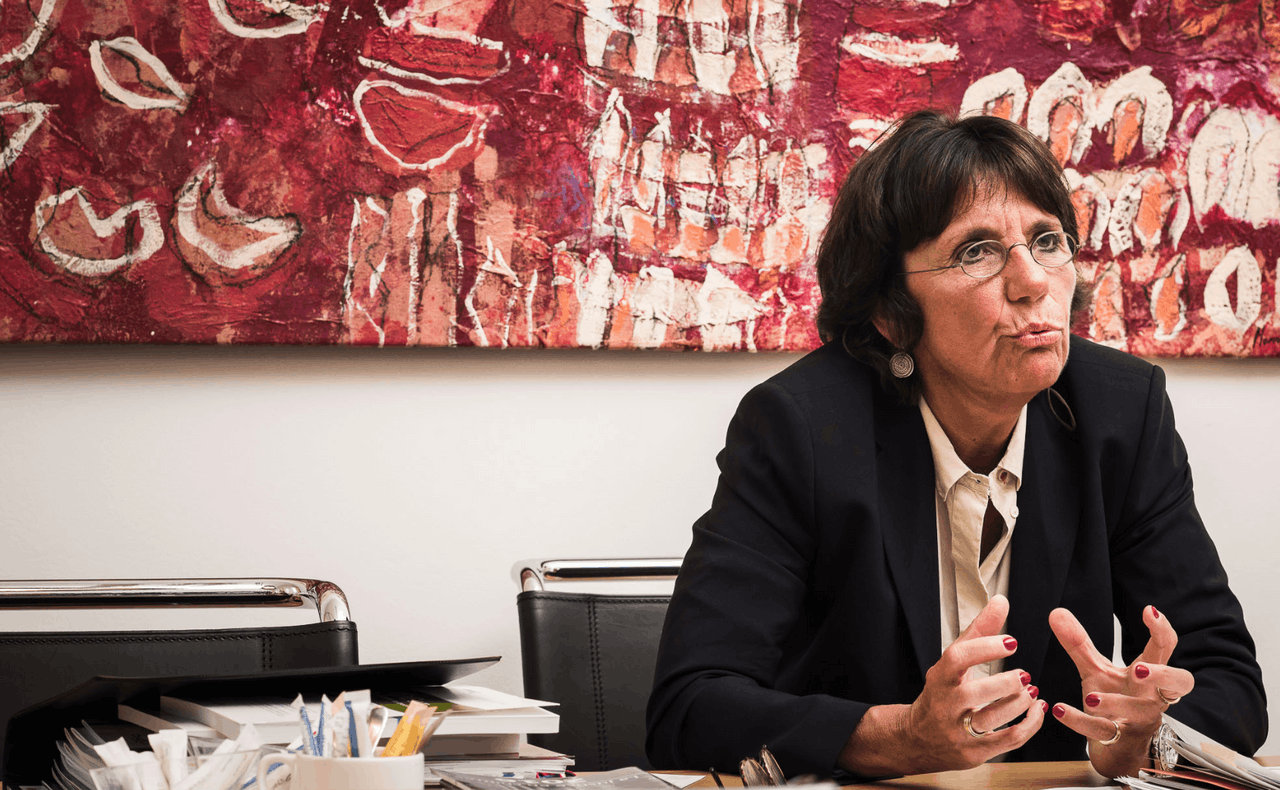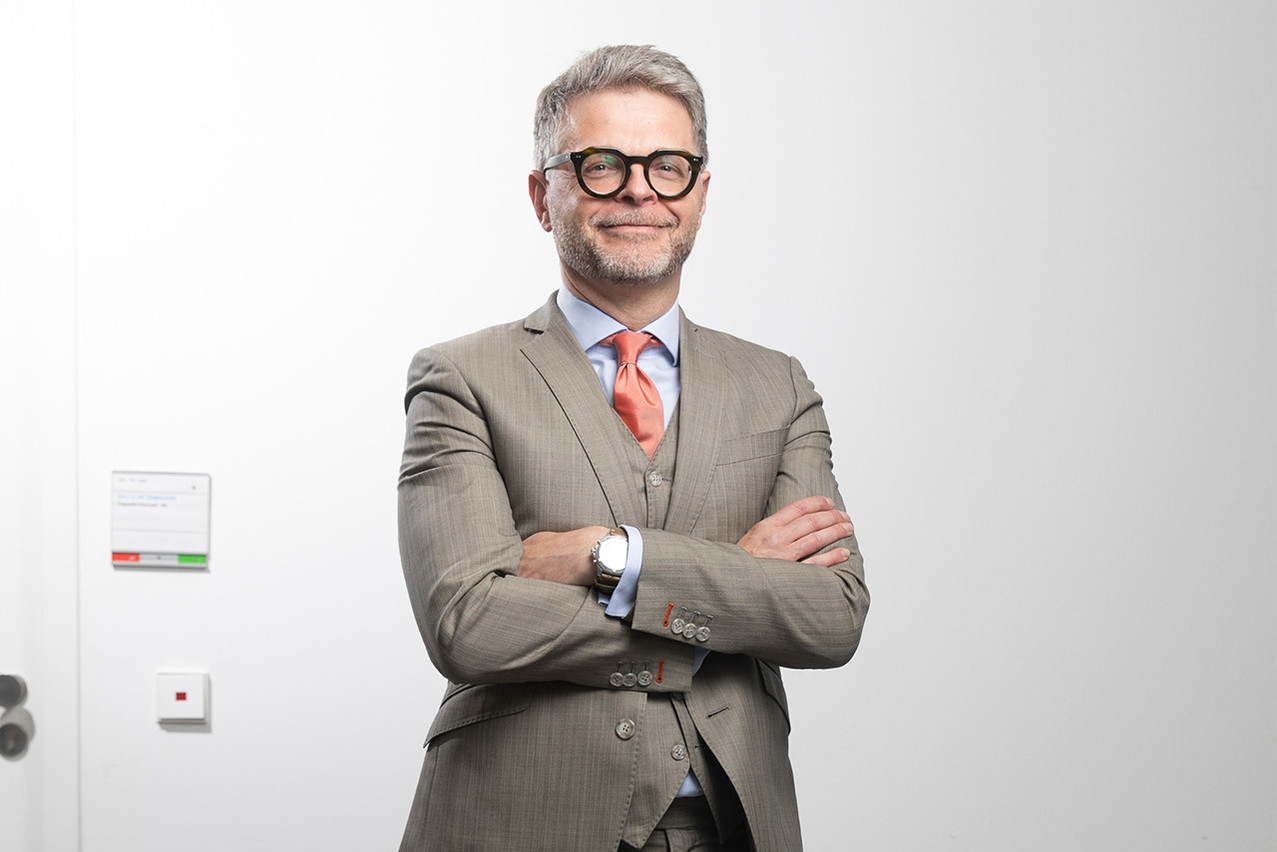The practice is clear and consistent: the day after general elections, after a final cabinet meeting, the prime minister submits their resignation and that of the outgoing government to the head of state, the grand duke. The grand duke accepts the resignations and asks the PM and ministers to remain in office, in a caretaker role, until the next government is appointed.
The constitution is silent on this crucial political moment. “The old constitution of 1868 made no provision for this, just like the new constitution of 2023,” said Luc Heuschling, professor of constitutional law at the University of Luxembourg. Heuschling is the author of “Le citoyen monarque: Réflexions sur le grand-duc, la famille grand-ducale et le droit de vote” (The citizen monarch: Reflections on the grand duke, the grand ducal family and the right to vote).
This constitutional oversight “is quite surprising because the authors of this reform had announced at the very beginning that the aim was to transcribe institutional customs and practice into the text of the constitution. On this point, nothing has changed,” Heuschling said. “Since 2009, when the constitutional reform process began, I don’t remember the subject being raised. Even though a transcription of customs would have been possible.”
Flexibility
Why such silence? In his view, the intention is to approach this moment with all the necessary flexibility. “Legally, the only thing the constitution provides is that the grand duke must appoint a prime minister. Everything else--how we go from one to another, how coalitions are formed, who has to talk to whom--is left to the discretion of the parties. And in the end, the grand duke has to propose a name,” he said. “In practice, there are two possible options. Either the grand duke contacts the various party leaders directly and personally, or he delegates this task to someone else. This is where either the ‘informateur’ or ‘formateur’ comes into play.”
Flexibility is not synonymous with arbitrariness. Many aspects of political life are not enshrined in a constitution. They are governed by practice. And practice gives rise to what are known as conventions to the constitution. These are customs which, even if not sanctioned by law, are imposed and respected by all players. So while the grand duke knows that he has a certain amount of power, he also knows that he cannot abuse it to do as he pleases, such as arbitrarily imposing a prime minister or refusing a cabinet appointment.

Following the 2018 legislative elections, the grand duke chose to appoint an “informateur”: Martine Solovieff, the attorney general. Library picture: Nader Ghavami/Maison Moderne
Legally possible, but politically unjustifiable. The philosophy that drives the head of state is summed up by the the lord chamberlain, : “Everything here is based on the customs and spirit of our institutional system. It is a mechanism that makes it possible to form a government in the best possible conditions and in the shortest possible time, depending on the outcome of the elections.”
“Informateur” or “formateur”?
“Informateur” literally means ‘informer’ but is an independent figure such as a judge or public prosecutor who brokers coalition talks with party leaders on behalf of the grand duke. An informateur is named when it is not immediately apparent who the grand duke should nominate as PM.
“Formateur” literally means ‘former’ or ‘instructor’ but is a prospective prime minister who has formally been given a mandate to assemble and put forward a cabinet to the grand duke that will secure a parliamentary vote of confidence. A formateur is named when the shape of a government is clear, either immediately following an election or after consultations conducted by the informateur.
Here is how the process works: after election results are announced, the grand duke will meet with the outgoing prime minister, the grand duke will receive the speaker of the Chamber of Deputies, the president of the Council of State (Luxembourg’s quasi-upper chamber) and the heads of all the parties that will sit in the new parliament.
“He will find out whether there is already a coalition emerging among the parties,” Dühr explained. “If so, he will appoint a formateur, generally from a political party that will be part of the next government, to form a government coalition. If, at the end of these consultations, there is no certainty as to the composition of the future government, he will choose an informateur instead. Their job will be to sound out the various parties on their intentions and options. The informateur will report back to the grand duke, who may then either appoint a formateur or restart the informateur process. The informateur is, in principle, chosen from among the members of the Luxembourg judiciary.”
In 2004 and 2009, the political situation was sufficiently clear for the grand duke to choose the outgoing prime minister, (CSV). In 2013 and 2018, the political situation was less clear. The head of state preferred to use an informateur. In 2013, he the then president of the Administrative Court magistrate Georges Ravarani. In 2018, on 15 October, the attorney general was appointed. It took her one day to make her report to the grand duke, who appointed (DP) as formateur on the same day. Coalition negotiations were then opened on 17 October.
Originally published in French by and translated for Delano. Additional background information about the roles of the “informateur” and “formateur” were added by Delano.
